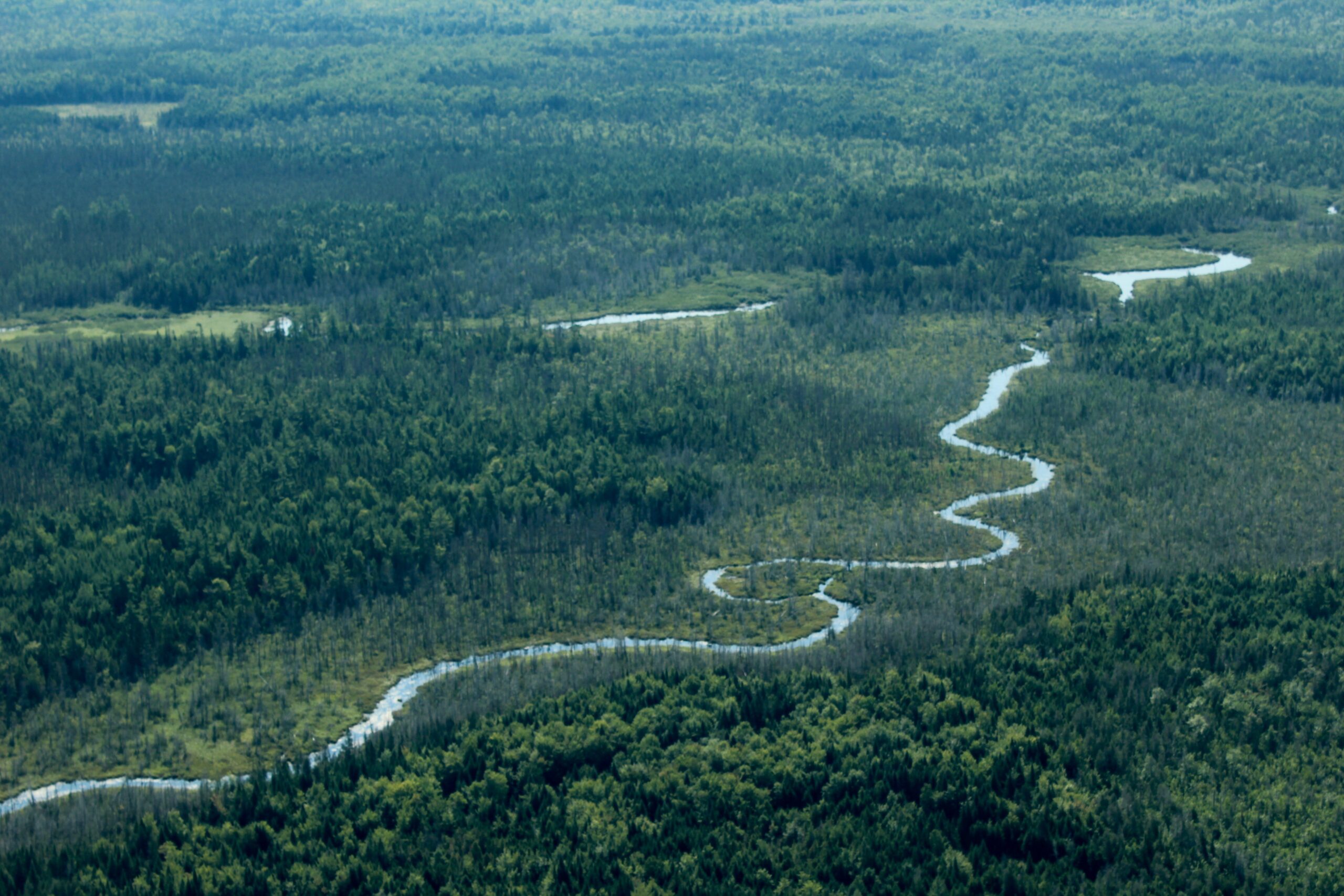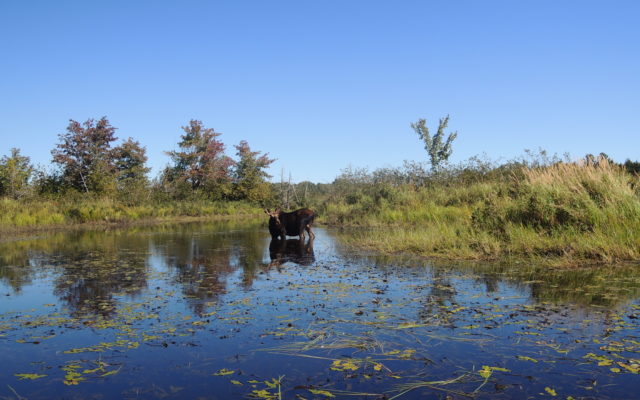
AMITY, Maine — A Forest City-based conservation trust has acquired a substantial parcel of land along the headwaters of the Chiputneticook Lakes system that officials say will be preserved for traditional recreation uses.
Arthur Wheaton, president of the Woodie Wheaton Land Trust, said that all of the 3,053 acres acquired under its Headwaters Project are within the East Grand Lake Watershed. The acreage borders 9.4 miles of Monument Stream in Amity, and includes both forested uplands and extensive wetlands along Greenleaf and Glendenning brooks.
Abutting the southern border are another 7,486 acres the trust originally acquired as part of its East Grand Watershed Initiative. The organization, however, has since conveyed that parcel to Maine’s Bureau of Public Lands and it is being managed for its wildlife habitat. That project also was initiated by the trust and the land acquired in partnership with The Conservation Fund.
The recent property was bought from Lakeville Shores, which is part of the H.C. Haynes family of forest businesses based in Winn. The purchase was made possible through a generous gift from Sam and Betty Shine of Indiana.
Portions of the land have been subject to commercial forest harvests for generations of ownership. The trust will continue to pay property taxes and related forest fees, according to Wheaton.
The Woodie Wheaton Land Trust, which is based in Forest City, has worked since 1994 to promote the protection, preservation and conservation of land and water in the Chiputneticook Lakes region of eastern Maine and western New Brunswick, according to a statement from the organization.
Wheaton said that the organization has wanted to buy this property for more than four years, and he said that the group intend to keep the land open for traditional uses such as hunting and fishing.
“We are not going to make any changes at all to what the land is currently used for,” he said. “We are not going to post it. Everyone fears that when a conservation group comes in and buys land like this that they are going to do that, but we have no intention of doing so. We may put signs up in the future reminding people to carry out what they carry in, but we just want people to enjoy the land.”
The trust is actively conserving about 10,541 acres of wild land in both Amity and Orient, according to Wheaton.
Property acquired under The Headwaters Project serves as a vast wintering yard for whitetail deer and is the largest area of “high value wading bird and waterfowl habitat” in the East Grand Watershed. There are more than 300 acres of wetlands in the conserved parcels, including dozens of species of birds. Some are rare or endangered.
Wild brook trout also can be found in Monument Brook and its tributaries, and Wheaton said that protecting the wetlands and restoring riparian habitat for shade and sedimentation control are critical to preserving the fish.
Along with conserving the land, Wheaton said that the trust also is protecting history through its preservation efforts. Monument Brook serves as the International Boundary between Maine and New Brunswick, affirmed by the Webster-Ashburton Treaty of 1842.
“The monument marking that treaty sits right on that property,” he said.
- A moose stands in Monument stream in Amity in this undated photo. The Woodie Wheaton Land Trust acquired to 3,053 acres along the headwaters of the Chiputneticook Lakes system in southern Aroostook that organization officials say will be preserved for traditional recreation uses. The acreage borders 9.4 miles of Monument Stream and includes both forested uplands and extensive wetlands along Greenleaf and Glendenning brooks. (Courtesy of Steve Keith | Woodie Wheaton Land Trust)








